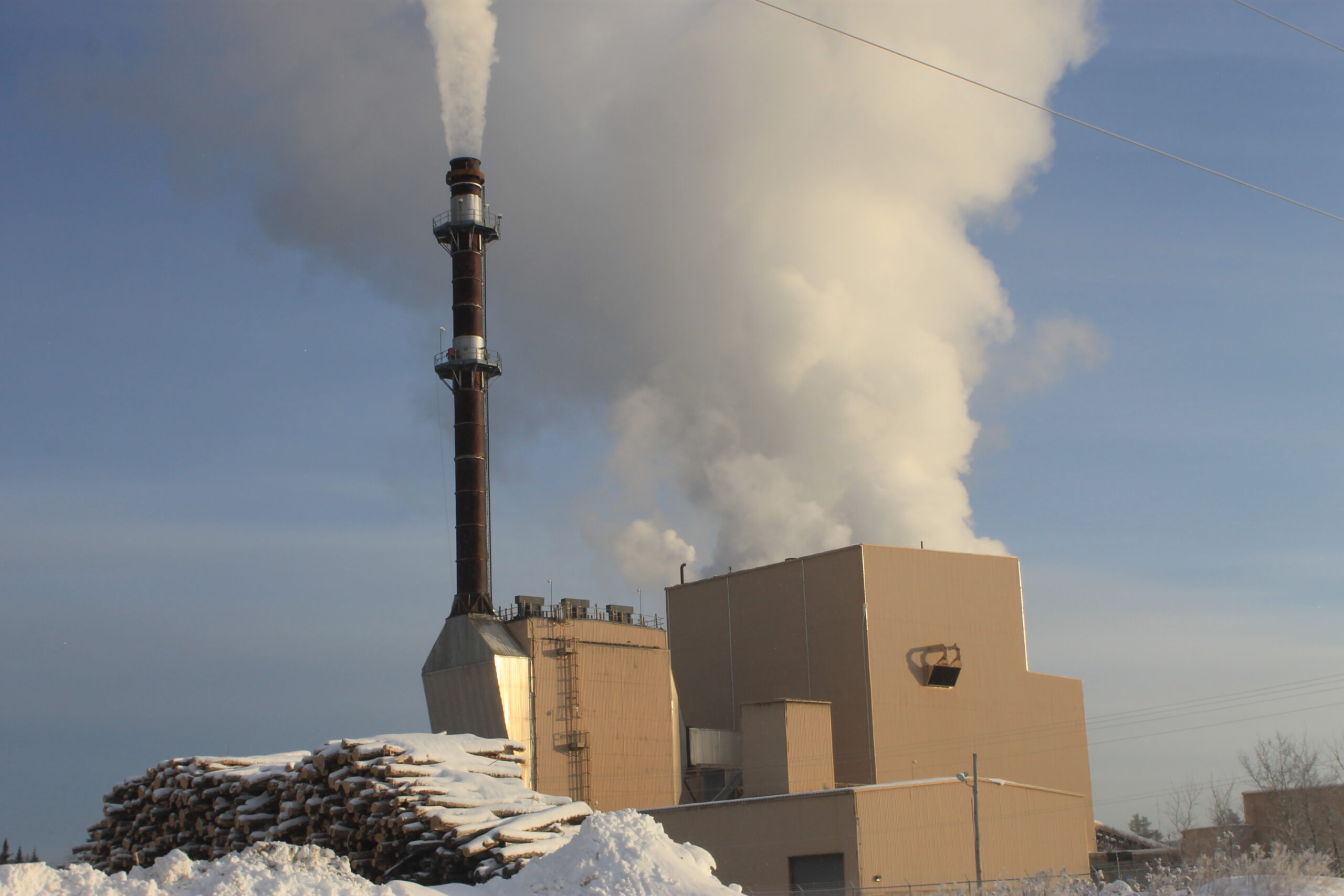
ASHLAND, Maine — The closure of Aroostook County’s two biomass plants is leaving the region’s sawmills without a ready outlet for all of their woody leftovers, such as bark, sawdust, shavings and chips.
ReEnergy’s Fort Fairfield plant closed last November and is now slated for demolition, while the Ashland facility is set to shut down this month, though has no demolition plans, according to New York-based ReEnergy.
Each of the two plants had between 22 and 30 suppliers of biomass, including sawmill residuals and wood chips from the limbs and tops of logged trees, said ReEnergy communications director Sarah Boggess. Mill residuals generally came from within a 40 mile radius, while wood chips were trucked in from as far away as 60 miles, Boggess said.
One of those mill suppliers, Katahdin Forest Products, is now trucking its mill residuals to the Sappi paper mill in Skowhegan.
“When you’re trailering it 200 miles, then the costs are very substantial,” said David Gordon, owner and CEO of Katahdin Forest Products, which has a sawmill in Ashland and a sawmill and log home assembly plant in Oakfield.
Both of Katahdin Forest Products mills produce dozens of truckloads worth of biomass residuals a week and most of it until recently went to ReEnergy, Gordon said. In Ashland, the biomass plant sits less than half-a-mile from the mill.
“We’re getting paid more for it from Sappi, but it’s a tremendous burden,” Gordon said. “It takes a lot more hours, more trucks, more people. It’s barely or in some situations it’s not even break-even.”
For decades, most sawmill residuals were purchased by the large paper mills that once operated across Maine, Gordon said. Within the last decade, there were paper mills operating in Lincoln, East Millinocket and Millinocket, all since shut down, Gordon noted.
The two Aroostook County biomass plants came online by the early 1990s and provided a new outlet for mill and forestry residuals while generating electricity.
Now, without the biomass plants, sawmill operators like Katahdin Forest Products need to find buyers or takers of their mill residuals.
Gordon estimates that around 60 to 70 percent of his mills’ residuals were going to ReEnergy and are now being sent to Sappi. Smaller quantities go to the Scotts factory in Medway, which produces mulch and other garden products. Some also goes to livestock farmers and heating pellet mills, Gordon said.
Katahdin Forest Products uses a biomass boiler for heating and lumber drying. The company considered installing its own small-scale biomass electricity system, but that “wasn’t even close to being feasible,” Gordon said.
“The closure of ReEnergy means more costs and logistical issues. Three years ago, we were making good margins on our mill residue, and now it’s a tremendous burden.”
Some other mills are less directly impacted by the ReEnergy closure, such as Daaquam Lumber in Masardis, the former Levesque mill, which is Aroostook County’s largest saw mill.
Daaquam plant manager Nate Whitney said most of the mill’s residuals are sold primarily for paper making, including to the Twin Rivers paper plant in Madawaska.
But he added that the company has a stake in seeing a biomass generator along the Route 11 corridor that can purchase and use mill residuals.
The ReEnergy plant is located in Ashland’s Machias River Industrial Park, which has more than 100 acres that could be developed. While the Fort Fairfield ReEnergy plant is slated for demolition, the hope is that another operator and manufacturing partner for the Ashland plant could emerge. Such a manufacturing operation could use lower-cost electricity and steam and hot water from the biomass plant.
“If the ReEnergy folks are fortunate enough to find someone to co-locate in Ashland, which has lots of room in the industrial park, that would be a win-win,” Gordon said.




